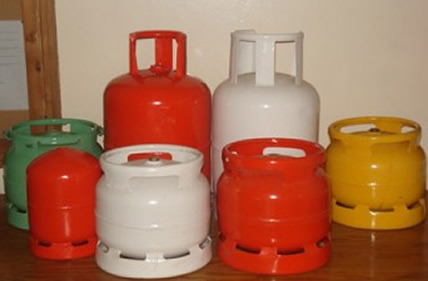Cooking gas, also known as liquefied petroleum gas (LPG), is an essential household fuel used by many Nigerians. However, recent price hikes in the cooking gas market have left consumers concerned and wondering about the reasons behind these increases. The Nigerian LNG Limited (NLNG) has shed light on the factors contributing to the surge in cooking gas prices in the country.
Dynamic Market Forces and Global Factors
The domestic LPG market, like any other, is influenced by various dynamic market forces and external factors. NLNG points to three major factors affecting the supply and prices of cooking gas in Nigeria:
- Exchange Rate Fluctuations: Changes in exchange rates can have a significant impact on the cost of importing LPG. As the Naira’s value fluctuates against other currencies, it affects the cost of procuring LPG from international markets.
- Crude Oil Price Benchmarks: The price of cooking gas is closely linked to crude oil prices. As crude oil prices rise or fall globally, it has a ripple effect on the cost of LPG in Nigeria.
- Panama Canal Drought-Induced Vessel Scarcity: Global transportation plays a crucial role in delivering LPG to Nigeria. The Panama Canal’s drought-induced vessel scarcity has increased transport costs for imported LPG, subsequently impacting the final price in the domestic market.
Supply Commitment by NLNG
Despite these challenges, NLNG has committed to supplying the domestic LPG market with approximately 1.3 million metric tonnes. This commitment serves a dual purpose: reducing the need for LPG imports and meeting the growing demand for cooking gas in Nigeria.
NLNG’s contribution to the growth of the domestic LPG market has been substantial, with the volume increasing from less than 50,000 metric tonnes in 2007 to over 1.3 million metric tonnes of both domestic and imported LPG today.
Read Also:
- UPDATE: Gas Retailers Hint On Further Price Hike As Nigerians Groan
- FG To Distribute 5m Cooking Gas Cylinders In 1 Year
- No More Ownership Of Cylinders By Gas Users – FG
Butane and Propane Production
NLNG has also made significant efforts in producing butane, which is a vital component of cooking gas. The company has dedicated its entire butane and propane production to the domestic market starting in 2023, further supporting the growth of the cooking gas market in Nigeria.
Approximately 40% of the total LPG market volume in Nigeria is supplied by NLNG, reflecting the company’s commitment to ensuring reliable and reasonably priced LPG supply to domestic consumers.
In conclusion, while cooking gas prices in Nigeria have experienced recent increases due to dynamic market forces and global factors, NLNG remains dedicated to supplying the domestic market with a focus on affordability and reliability. The company’s ongoing collaboration with industry stakeholders reinforces its commitment to achieving these objectives and sustaining the growth of the domestic LPG market.
As consumers, understanding the various factors influencing cooking gas prices can help us make informed decisions and adapt to the evolving energy landscape in Nigeria.
Follow us on Facebook
Post Disclaimer
The opinions, beliefs and viewpoints expressed by the author and forum participants on this website do not necessarily reflect the opinions, beliefs and viewpoints of Anaedo Online or official policies of the Anaedo Online.

